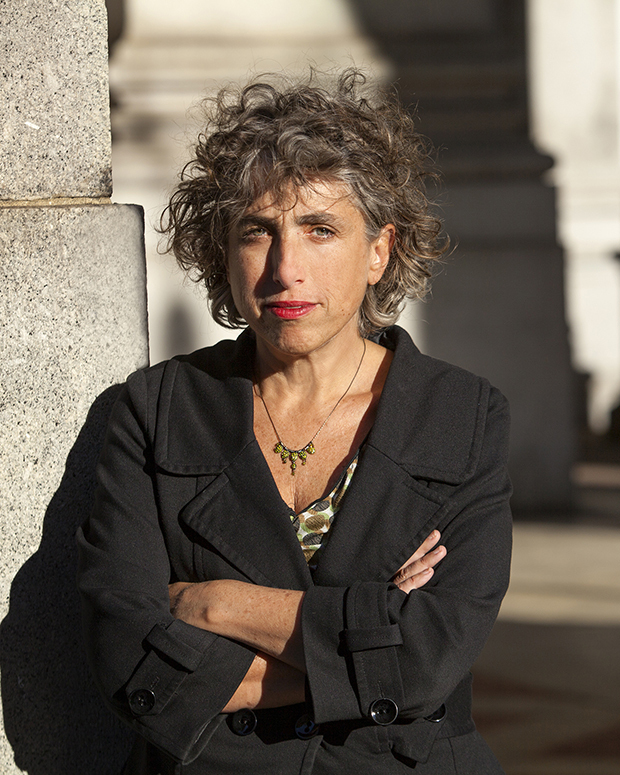
c/o Matthew Septimus
On Wednesday, April 17, investigative journalist Andrea Bernstein P’20 met with University students and faculty to discuss her career in journalism and her recent coverage of former President Donald Trump’s criminal charges in New York City. The talk, sponsored by the Government Department and the College of Social Studies, was organized by Professor of Government Sonali Chakravarti.
Bernstein presented on her career as a journalist in New York, from her 21-year tenure at WNYC to her recent move to ProPublica.
Bernstein, who authored “American Oligarchs: The Kushners, the Trumps and the Marriage of Money and Power” and is the co-host of the “Trump, Inc.” podcast in collaboration with ProPublica, discussed her coverage of Trump’s ongoing criminal trial in New York City. Trump, who is the Republican Party’s 2024 presidential nominee, is facing four indictments, comprising various state-level and federal charges in New York, Georgia, and Washington, D.C.
The highly acclaimed reporter’s coverage of Trump is particularly notable; this is his fifth trial that she has covered. To this date, Trump has been found civilly liable for charges ranging from rape and sexual abuse to fraud, and has been ordered to pay over $500 million in total to his victims. In the ongoing trial in Manhattan, he faces 34 fraud-related charges regarding his 2016 hush-money payment to pornographic film actress Stormy Daniels. He could face up to four years in prison if convicted.
Bernstein argued that despite Trump’s accumulating legal defeats, this case is of special significance. This week, he became the first president in U.S. history to face a criminal trial, meaning he could go to jail if found guilty by a jury.
“Trump’s liberty is at stake,” Bernstein said.
When asked about the likelihood of a conviction, Bernstein emphasized the variables and changing circumstances that could bolster or detract from the prosecution’s case.
“It’s impossible to know,” Bernstein said. “Anybody who says otherwise is guessing.”
One certain thing, according to Bernstein, is that this trial will interfere significantly with Trump’s ongoing campaign. The former president’s presence will be required in the Manhattan courtroom every Monday, Tuesday, Thursday, and Friday until a verdict is reached, which will likely not occur for six to eight weeks.
Given Trump’s well-known reliance on in-person rallies and his razor-thin margin in recent polls, the implications of this could be pivotal. However, Bernstein cautioned Trump’s opponents against relying on an eventual conviction to detract from his political appeal.
“Three juries and a judge have ruled against him,” Bernstein said. “Will that actually change political outcomes?”
While the White House has avoided commenting on the ongoing trial, President Joe Biden has capitalized aggressively on Trump’s absence from the campaign trail, making appearances in several swing states in the past weeks.
Several delays have pushed the trial back, but following jury selection on Thursday, April 18, the presiding judge, Juan Merchan, said that he hoped opening arguments would begin by Monday, April 22.
In her talk, Bernstein underscored the difficulty of finding an impartial jury in Manhattan, where Biden received nearly 85% of the vote in 2020. On Monday, April 15, during jury selection, a potential candidate reportedly claimed that “no one is above the law,” loud enough for the former president to hear. Since then, two selected jurors have been dismissed from the jury pool, with one citing concerns about her anonymity. According to Bernstein, only six journalists are allowed in the main courtroom. The rest sit in an overflow room adjacent to the courtroom, but can hear the jurors’ testimony and identifying traits. At the time of this article’s publication, 12 jurors have been selected for the trial.
Trump, who has repeatedly used social media to attack the judge, the judge’s family, and Manhattan District Attorney Alvin Bragg, who is prosecuting the case, has faced multiple gag orders and verbal admonishments from Merchan. Bernstein highlighted the abnormality of Trump’s behavior.
“Watching how he does not believe the rules of the court apply to him is just unbelievable,” Bernstein said.
According to Bernstein, Trump’s criminal proceedings are unlike any other trial she had ever covered. She argued that Merchan has shown an atypical level of patience with the former president’s antics, going as far as to argue that he is receiving special treatment.
“Other defendants would likely not get away with this,” Bernstein remarked.
Regardless of the outcome of the trial, she argued, Trump’s efforts to delegitimize the court and prosecuting attorneys will have long-term effects.
“It’s unbelievable that someone could be found, by multiple courts, to be able to lie fluently and still be a major party’s presidential nominee,” Bernstein said. “He is poisoning how people feel about the justice system in any case.… [That] is a profound blow to our democracy.”
Bernstein finished her talk with a Q&A session, in which students, faculty, and alumni were able to ask the reporter questions regarding her career, the ongoing trial, and the implications of a former president’s criminal prosecution.
Miles Pinsof-Berlowitz can be reached at mpinsofberlo@wesleyan.edu.
Miles Craven can be reached at mcraven@wesleyan.edu.